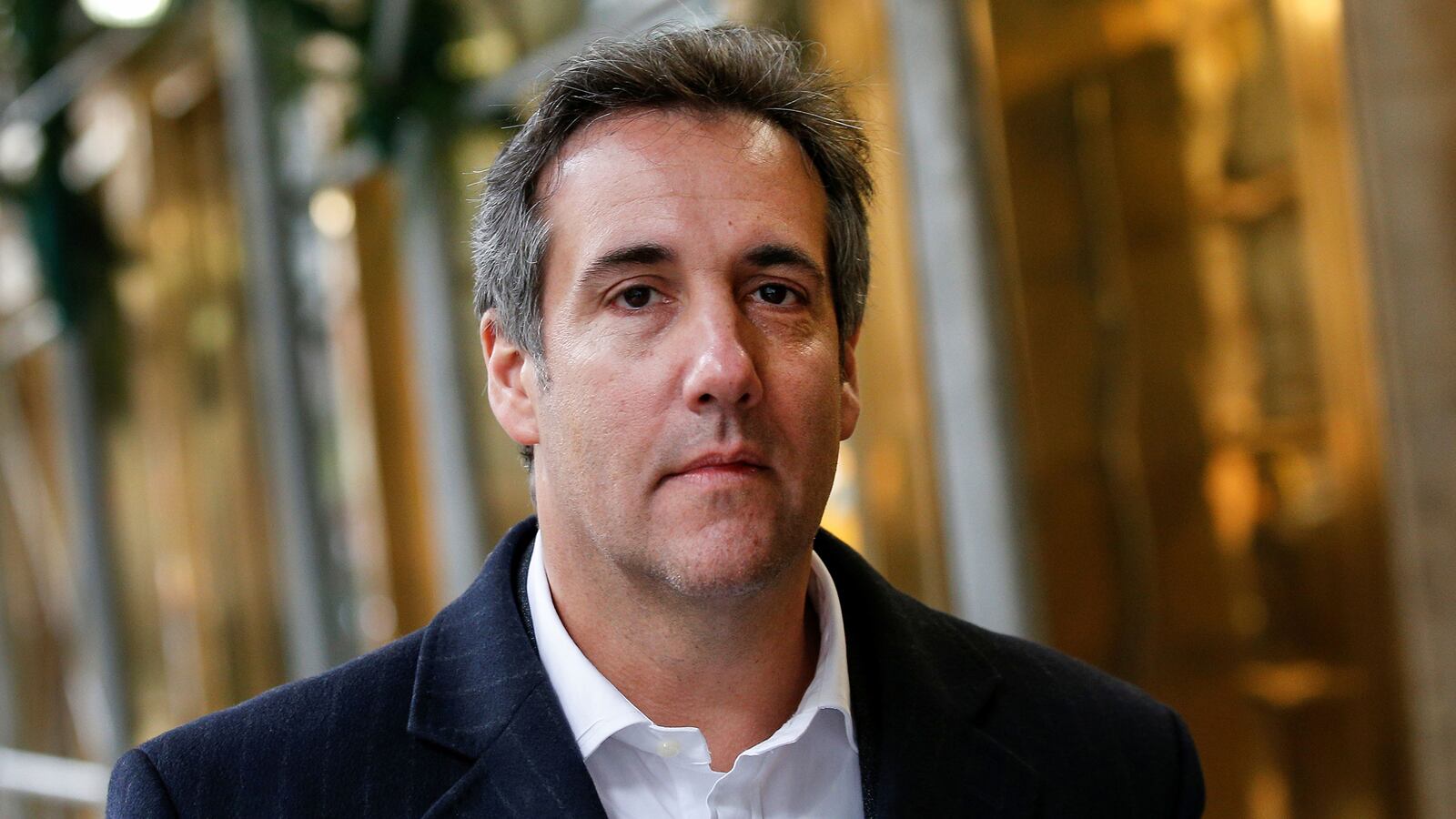President Donald Trump’s longtime personal attorney and fixer, Michael Cohen, is “under criminal investigation,” the Justice Department said in a court filing on Friday.
It’s the first peek at the investigation of Cohen after a raid on his offices and home Monday by FBI agents. Trump called the raid an “attack on our country in a true sense” and has reportedly got the president stewing again about firing Deputy Attorney General Rod Rosenstein, who signed off on the raid, and special counsel Robert Mueller, who made a referral to prosecutors in Manhattan.
Cohen has been the subject of a “months-long investigation” into “acts of concealment” and “fraud” as part of an “ongoing grand jury investigation,” the filing said. Prosecutors obtained search warrants on multiple email accounts maintained by Cohen before Monday’s raid, they said.
The filing was submitted by the U.S. Attorney’s Office for the Southern District of New York in response to a motion by Cohen earlier Friday that asked a federal judge to block the Justice Department’s access to documents seized in the raid until he reviews them to determine what might be protected by attorney-client privilege (PDF).
Prosecutors responded that Cohen’s request “belies the true intent of his motion: To delay the case and deprive the [U.S. attorney’s office] of evidence to which it is entitled.”
That evidence includes items those found in Cohen’s residence, office, a hotel room, his safety deposit box, and electronic devices. The items (reportedly emails, tax documents, and business records) were ordered after a magistrate “found probable cause to believe that the premises and devices searched contained evidence, fruits, and instrumentalities of conduct for which Cohen is under criminal investigation,” according to the filing.
Although the nature of that alleged conduct remains a mystery, the filing says that the investigation “largely centers on [Cohen’s] personal business dealings.”
The filing took a direct shot at Cohen’s claim that much of the evidence seized falls under the umbrella of attorney-client privilege.
“The searches… seek evidence of crimes, many of which have nothing to do with his work as an attorney, but rather relate to Cohen’s own business dealings,” the filing stated, noting that covert search warrants on multiple different email accounts maintained by Cohen “indicate that Cohen is in fact performing little to no legal work.”
Prosecutors also used Cohen and Trump’s words against them in the filing, particularly Trump’s denial that he knew about a $130,000 payment made by Cohen to adult-film star Stormy Daniels in the waning days of the 2016 presidential campaign. Daniels, currently embroiled in her own legal battle with Cohen and the president, says that the payment was made in exchange for her silence about a physical relationship between herself and the president in 2006, shortly after the birth of Trump’s fifth child.
Trump has expressed a close interest in the case, calling the raid “a disgraceful situation” and even going to far as to call Cohen ahead of today’s filing to “check in,” according to The New York Times.
“There is reason to doubt that even communications with his only publicly identified client [Trump] regarding payments to... Stormy Daniels, would be protected by attorney-client privilege,” a footnote states. “Among other things, President Trump has publicly denied knowing that Cohen paid Clifford, and suggested to reporters that they had to ‘ask Michael’ about the payment.”
This comes at a time of increased scrutiny on Cohen’s activities by special counsel Robert Mueller, as the former FBI director investigates Russian interference in the 2016 presidential election. On Friday, McClatchy reported that Mueller had evidence that Cohen had made a trip to Prague in late summer 2016. The trip, which Cohen has repeatedly denied, would confirm at least part of the Steele dossier.





